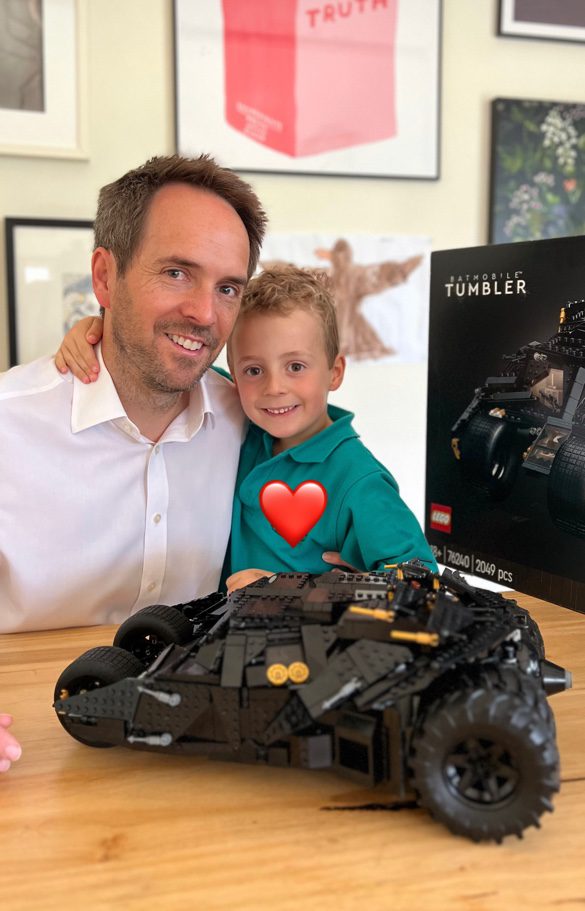At Antares, we have experience working with schools at every level, from pre-K through college. We have helped organisations around the world turn their challenges into opportunities, so we were excited to showcase this at last years EduTech conference. During this conference we ran a competition and gifted a Batman Batmobile Technic LEGO®.
We were thrilled to announce that winner is David Howard from Wesley College in Melbourne. David and his very talented 6-year-old son completed the build together over winter, with his son doing most of the work despite its complexity.
“My son has been building sets designed for adults since he was 4 years old,” says David. “He built the Batmobile almost entirely on his own – my role was to find the pieces and give them to him!
“We found it very enjoyable, and it’s a great way for him to develop his problem solving and creative thinking skills.”
LEGO® is certainly not new to David. He’s been playing with it since he was a child, when his own dad would help him rig up 9-volt circuits and wire lighting through his creations to bring them to life. As a teacher for more than 20 years, and now Head of Digital Learning and Practice, David believes the value of play-based learning cannot be underestimated.
“There is so much children can learn from building with LEGO®: trial and error, creativity, thinking outside the box. When I was younger I would always free build, so I was a bit critical when they started including instructions. But I see now how the instructions are useful – helping the children learn skills which they can then apply to free builds.
“Play is so important for students regardless of age, and LEGO® is a really versatile medium. Teachers can use it in story-telling, digital technology, science, robotics, and for all types of problem-solving challenges.”
LEGO® is for everyone
Over the years, David has successfully used LEGO® to engage students in learning regardless of age or gender.
“It’s interesting the preconceptions many girls had when coming into a robotics class and being confronted with LEGO®. Many would say they had never used it or aren’t good at it, or had some pre-built gender-stereotyped version of it at home like LEGO® Friends. It took a while for them to realise they had a creative licence to play and experiment, and even if they failed it was a good teachable moment.
“I feel society has told girls they are not good at STEM before they even try, and this is particularly concerning when they choose electives early on and might close themselves off to certain pathways.
“There’s a duty on us in curriculum leadership roles to make sure all students experience all parts of the curriculum. Girls are certainly more than capable in all areas of STEM. I once had a year 7 girl in a robotics club beat out year 12 boys with her design.”
On the frontline of education and technology
As Head of Digital Learning and Practice, David’s team oversees how digital learning is used in the classroom. Being on the frontline of education and technology, he sees first hand the benefits and challenges of moving into a more tech-enabled future.
“Artificial intelligence (AI) is certainly making headway, and people around the world are touting it for its ability to produce everything from artwork to lesson plans to student essays. Wherever it goes, it’s important for us to upskill users to better understand what’s happening around them. If we call it an algorithm instead of AI, we realise there are ways to game it and ways to benefit from it.
“We need to educate people to step back and ask how they can use it to their advantage. For example, teachers need to know they may be receiving essays written by AI. Does that mean we discipline the students? Or do we realise this is happening and consider that perhaps an essay is no longer the best way to assess a student’s knowledge?”
Moving forward, David is really enjoying the variety in his role at Wesley College, and looking forward to building more LEGO® sets at home.
“My son was only watching LEGO® Masters last night, saying he wants more LEGO® so he can build more. I’m keen to get him into the movement and lighting side, but that’s my inner child coming out. So I’ll have to wait and see if he wants to go down that pathway!”
At Antares, we work with a variety of schools doing exciting things with technology. Learn about our technology solutions for schools.




